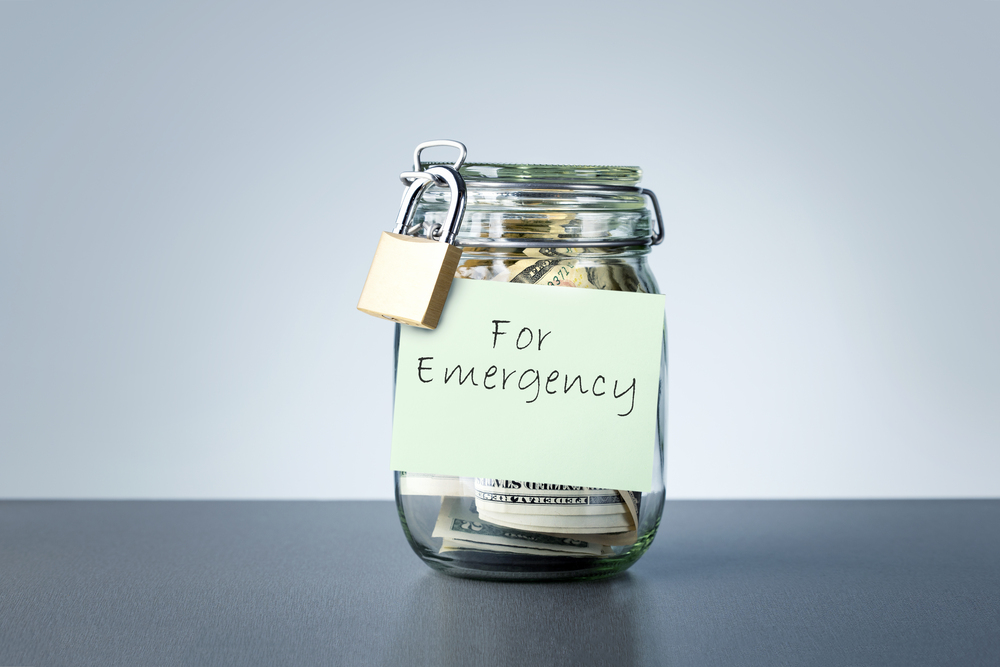Unexpected things can happen at any time and require you to spend a lot of money. When this condition befalls you, at that time an emergency fund is needed to prevent disruption of financial cash flows.
Then, what needs to be prepared to have an emergency fund, and how much do you need to collect? Read more in the following description.
Definition of Emergency Fund
As the name implies, an emergency fund is a fund that is prepared for emergencies. For example, in anticipation of being hit by a disaster, layoffs, falling sick, going bankrupt, and other things that are quite a burden on expenses.
These funds must be prioritized so that the necessities of life can still be met and are able to survive when unexpected things happen.
This fund must be owned by everyone, both single and married. Keep in mind, these funds can only be used when there is an urgent situation and outside of expenses and savings posts.
The Importance of an Emergency Fund
Many Indonesians are not aware of the importance of having an emergency fund. There are many factors that cause this to happen, one of which is the lack of financial literacy.
At first glance, you may have caught the concept of an emergency fund from the previous explanation. So, what are the benefits that will be obtained by having these funds? Here are the reasons why having this fund is so important.
1. As a Reserve Fund When Affected by Layoffs
Termination of Employment (PHK), layoffs, and various other employee efficiencies can happen to anyone. And when that happens, you definitely need time to find a new job.
During this search period, monthly needs must continue, especially primary needs. Therefore, an emergency fund needs to be prepared so that you can continue to survive even when you lose your main income.
2. Medical expenses when you fall ill suddenly
Health is one of the most important things for everyone. Although health insurance can help us when we are sick, not all insurance will cover 100% of medical expenses.
Therefore, the presence of an emergency fund is very useful to help you when you fall ill suddenly.
3. As the Cost of Fulfilling Daily Living Needs During Crisis Conditions
Unusual conditions can occur at any time. For example, economic crisis conditions such as inflation to recession. When this happens, surely many sectors are affected and have an impact on the welfare of each individual.
When you have an emergency fund, you will be calmer and less troubled because at least in the next 5 months your needs can still be met properly.
4. As a Personal Asset Repair Fund
Damage to personal assets can happen at any time. Many of us may have ensured our valuable assets, but if one day we experience an urgent condition that requires immediate action, of course, you will need to pay a lot of money.
It's different if you already have an emergency fund, it can be minimized properly, without disturbing other financial posts.
5. Free From Debt
Debt isn't always a bad thing. Especially if the debt is included in the productive debt category, such as working capital. However, if you have to go into debt because the monthly money runs out in the middle of the road or suddenly experience theft, this will certainly be very inconvenient.
Because having debt will greatly affect the condition of your monthly financial post. this will be a new burden that you need to complete and interfere with the expense post. As a result, every month you will be made dizzy to allocate some funds to pay debts.
Amount of Emergency Funds That Must Be Prepared
Each individual has a different amount of emergency funds. This depends on the monthly needs and the presence or absence of dependents.
The nominal amount that needs to be prepared according to the conditions can be seen as follows.
1. Single / Not Married
For individuals who are unmarried or single, the amount of emergency funds collected is ideally 6 times the monthly expenditure. This refers to the current economic conditions affected by the pandemic and the time it takes to find a new job.
2. Married
For those who are married or married, the amount of emergency funds that should be saved is 9 times the monthly expenditure.
This is so that the needs of each month can continue to be met. Because the needs and lifestyle before marriage and after the marriage has a fairly obvious difference.
3. Already Married and Having Children
Finally, for those who are married and have children, the funds that should be prepared are 12 times the monthly expenses.
From the description above, it can be concluded that the ideal amount of emergency funds is between 6-12 months of total expenditure per month. This is done as a preventive measure so that your family can live in prosperity even though things are not going well, especially during pandemic conditions like now.
To make it easier for you to calculate emergency funds, do the calculations using the following formula.
Emergency Fund = Monthly Expenditure X 6
For example, Andi is an employee who works in a private company, is still single, and has no dependents. Every month Andi has the same amount of expenses of Rp. 5 million. Then the emergency funds that Andi needs to prepare are:
Rp5 Million X 6 = Rp30 Million
So, the nominal amount of funds that Andi should have is IDR 30 million.
Tips for Preparing an Emergency Fund
Now, after you know how important this emergency fund is, then you can prepare these funds from now on. The sooner the better. Follow these tips.

Image Source: Freepik/Krishna Tedjo
1. Put It In A Different Account
The first tip is to separate the expense account from the emergency fund account. This needs to be done so that the collected funds do not get mixed up with expenses that end up failing to save due to being accidentally used.
2. Calculate the Number of Funds that Need to be Saved
The second tip is to calculate the number of emergency funds that need to be prepared. This is to determine the exact nominal that you must achieve.
After that, you can determine what percentage you need to set aside from your monthly income.
3. Consistent Saving
Lastly and most importantly, consistently save. Without doing this you will find it difficult to reach your predetermined emergency fund target. You must be able to commit to yourself and set priorities.
The amount you need to set aside to collect an emergency fund doesn't have to be large, the most important thing is that you start saving as early as possible, and do it regularly every month.
4. Looking for Additional Income
Raising an emergency fund takes extra patience and perseverance. The reason is, the target funds that need to be collected have a nominal greater than your income and expenses.
One alternative option that you can do to collect these funds quickly is to look for additional income. For example starting freelance, opening a jastip, becoming a reseller, or drop shipper, to opening your own business.
Well, if you are interested in starting a business but are still confused about getting capital, you can apply for financing from BFI Finance. The process is quick and easy, it doesn't take long.
You can access more detailed information regarding the loan via the link below.
Submission Information BPKB Motor Guarantee Loan
Submission Information Car BPKB Guarantee Loan
Submission Information Home Certificate Guarantee Loan
Sobat BFI, that's information about emergency funds. The hope is that you can start preparing these funds as early as possible. Also, make sure you store it in a safe and reliable place.
Get other interesting articles about business, loans, general information, and much more only on the BFI Blog!







